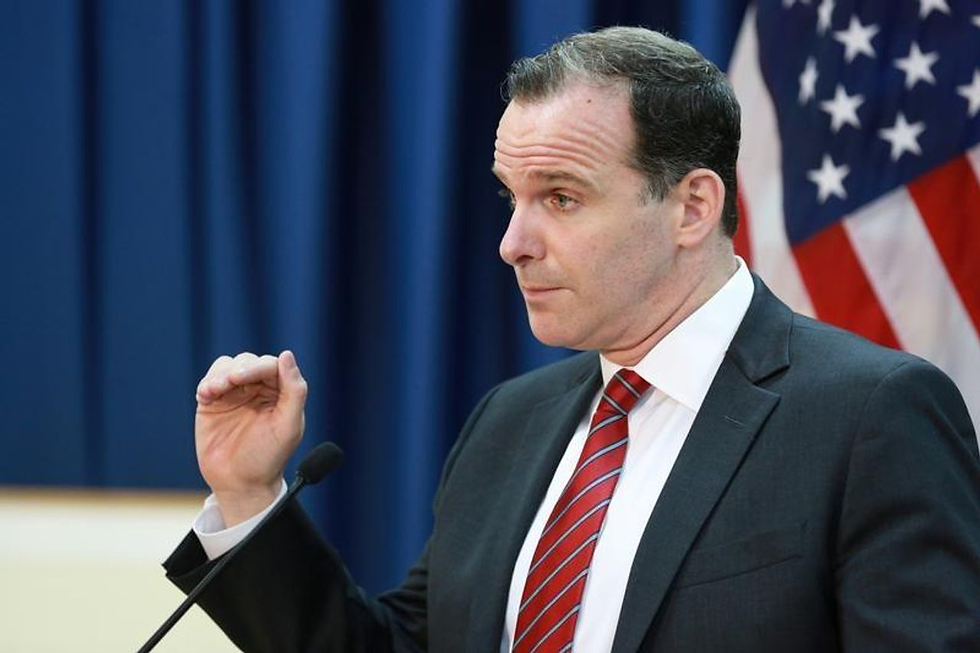
Source: Iranintl
May 31, 2023
Secret Talks In Oman Suggest US Is Preparing Deals With Iran
Author: Iran International Newsroom
It is looking ever more likely that the US is stepping up talks to kick-start nuclear talks with Iran despite denials from senior diplomats.
As Brett McGurk, President Biden’s senior Middle East adviser, took a low-profile trip to Oman earlier this month for talks on possible diplomatic outreach to Iran, it seems this is more than ‘talks’.
Neither the US nor Oman made the visit public, suggesting only something as serious as Iran could have called for such secrecy. Though the Biden administration has spoken of their desire to quash Iran’s nuclear program, its softly softly approach has called into question the lengths it will go to.
Oman has recently been pitched as a broker between Iran and Saudi in the lead-up to the detente in March and stands a good chance of holding Iran’s hand as it deals with its biggest enemy.
Brett McGurk, President Joe Biden’s senior Middle East adviser
Behind the scenes, Rafael Grossi, Director General of the International Atomic Energy Agency, said on Tuesday that work with Iran on its nuclear enrichment is “a work in progress”.
At a press conference in New York, he said the latest report of his visit in March will be released soon but admitted “there are a number of issues we are still working with Iran on, with some we are making progress and with others, no, so it’s an ongoing thing and we haven’t reached an end station”, explaining that it is a “complex” array of issues as the IAEA seeks clarity on three locations being investigated.
However, whether the agency has really won greater oversight powers as agreed in March, is to be seen. The undeclared Marivan site near Abadeh, south of Isfahan, remains a hot topic. He said the IAEA is yet to implement the terms of the joint statement including additional monitoring capabilities for the IAEA.
Speaking to Axios, a White House National Security Council (NSC) spokesperson downplayed the speculation of a new deal circulating in Jerusalem. “There is no US discussion of an interim deal and no discussion of sanctions relief, or closing safeguards cases," the spokesperson said, meanwhile quoting a senior European diplomat who said that the US is indeed working with the Omanis on the Iranian issue.
Keeping mum on talks, the White House NSC spokesperson deferred to ‘security concerns’ as the reason for the lack of transparency, but admitted discussions centered around regional diplomacy, "of which Iran is one aspect.”
Axios claims the Israeli government is concerned about a possible push by the Biden administration for a “freeze for freeze” interim agreement with Iran, which will be subject of discussions for Israeli minister for strategic affairs Ron Dermer and National Security Adviser Tzachi Hanegbi who are expected to discuss these concerns during their visit to the White House tomorrow (Thursday).
Meanwhile, as diplomatic chess pieces continue to shift, the Korea Economic Daily reported on Tuesday that South Korea and the US are discussing ways to release $7 billion in Iranian funds held in South Korea, a South Korean debt for oil imports from Iran due to global sanctions.
Just like the high-profile case of British-Iranian dual-national Nazanin Zaghari-Ratcliffe, held under ransom for a British debt to Iran, it is highly likely the deal has the same premise - cash for hostages. Currently there are three dual nationals with American citizenship and two individuals with US permanent residency held by Iran on trumped-up charges of espionage.
US envoy for Iran Robert Malley
Speaking to NPR this week, the US envoy for Iran, Robert Malley, continued to stress that diplomacy is the Biden administration’s first choice. “I think it's been proven to be the most effective way and the most sustainable way to make sure that Iran doesn't acquire a bomb,” he said, claiming to have forged “a credible diplomatic path”.
In spite of the imbalance of attacks on the US personnel and bases in the Middle East versus retaliatory attacks carried out by the US, he still claims to also have “a credible deterrence path”. As of March, Iran had launched 83 attacks on the US in the likes of Iraq and Syria, with only four military responses. It has garnered much criticism from both sides in Washington.
He said: “In other words, [the] president has said all options are on the table. You could imagine what that means. He has said explicitly that the military option will be on the table. It is far from the preferred option, but he will do what it takes to make sure Iran doesn't acquire a bomb. And we hope that we could resolve this through diplomatic means, and we're prepared to go down that path.”


